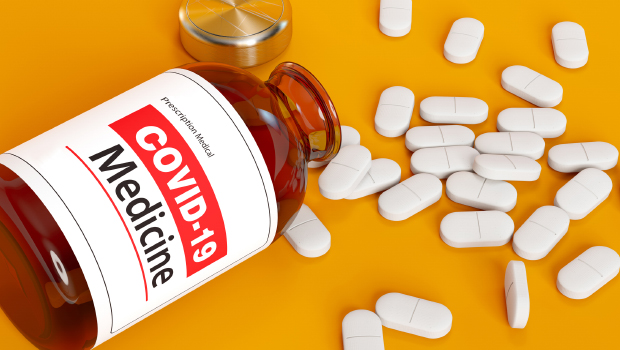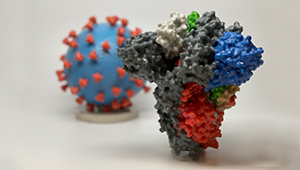New report supports value of COVID-19 drugs

A team led by Kai Yeung, PharmD, PhD, reviewed trial results to assess the clinical effectiveness and value of 3 treatments
New treatments for people at high risk for severe COVID-19 appear to be a good value, according to an analysis led by Kai Yeung, PharmD, PhD, assistant investigator at Kaiser Permanente Washington Health Research Institute.
Yeung is the lead author of a new report on the clinical effectiveness and value of 3 COVID-19 treatments: molnupiravir, Paxlovid (a brand name for a combination drug that contains ritonavir), and fluvoxamine. The report evaluated the drugs using data from clinical trials that compared the drugs to a placebo in people with mild-to-moderate COVID-19. The trial participants were mainly unvaccinated and were at high risk of developing more severe disease because of conditions such as asthma, heart disease, or immunosuppression.
"All 3 drugs reduced hospitalizations in the clinical trials we examined for the report," said Yeung. "The report reflects a particular period in the COVID-19 pandemic, though, so as the situation changes, we expect to get additional information on the most effective, high-value treatments for the disease."
Support for the treatments
Yeung and colleagues reviewed results from randomized clinical trials that compared patients who received one of the drugs within a few days of the onset of COVID-19 symptoms to people who got a placebo. The report focused on serious outcomes such as being hospitalized or dying and examined any reported side effects from the drugs.
All treatments were better than placebo at preventing hospitalization or death. The groups treated with a drug had up to an 88% lower risk of one of these outcomes than the groups given placebo. Paxlovid showed the greatest reduction in relative risk of hospitalization or death from any cause compared to placebo. The drugs cannot be compared directly, however. Differences in the countries where the clinical trials were conducted, the participants enrolled, and the pandemic situations in the countries at the time of the trials prevent drug-to-drug comparisons.
The report authors also note that when the trials were conducted, Omicron variants of the virus that causes COVID-19 were not circulating. The impacts of the drugs in the current environment and in the real world outside of a clinical trial are uncertain.
The treatments differ in how they work. Molnupiravir and ritonavir (the component of Paxlovid) are small compounds that target enzyme functions that the virus requires to replicate. Fluvoxamine, an SSRI (selective serotonin reuptake inhibitor), is used to treat conditions such as obsessive-compulsive disorder and might work through the body's immune response.
These differences in the treatments mean they have different potential safety concerns, too. The way that molnupiravir works means it could potentially trigger genetic mutations in cells. Its use is limited to people who are older than 18 years and not pregnant or breastfeeding. The ritonavir in Paxlovid is known to interact with other drugs that people with high risk of severe COVID-19 might be taking, such as immunosuppressants. Fluvoxamine is in a class of drugs that is associated with increased risk of suicidal thinking for some children, adolescents, and young adults.
Promising cost-effectiveness
Cost estimates for COVID-19 treatment with the drugs ranged from $12 for fluvoxamine to $707 for molnupiravir, but these estimates do not predict what health care organizations or patients might pay. Those costs depend on factors such as the patient's insurance plan. Yeung and the report coauthors were also interested in cost-effectiveness rather than simple costs, meaning that they also considered how much a drug might extend patients' lives, improve their quality of life, and reduce hospital burden. All 3 drugs met or exceeded the standard cost-effectiveness levels that are usually applied in the U.S.
"All the treatments had evidence supporting at least a small net benefit for preventing patients with mild-to-moderate COVID-19 from developing more serious disease," Yeung said. "The clinical value of these treatments changes with conditions such as hospitalization rates, but they all have potential benefits for patients."
The report, "Special Assessment of Outpatient Treatments for COVID-19," is from the Institute for Clinical and Economic Review, a nonprofit organization that conducts evidence reviews, for example of drug pricing and patient access.
research profile

Which prescription drug policies control patient costs?
Americans worry about medication and health care costs. Dr. Kai Yeung studies policies and laws to reduce them.
Research

COVID-19 pandemic research at KPWHRI
Having long tracked infectious diseases and tested vaccines, KPWHRI now focuses on the novel coronavirus.


